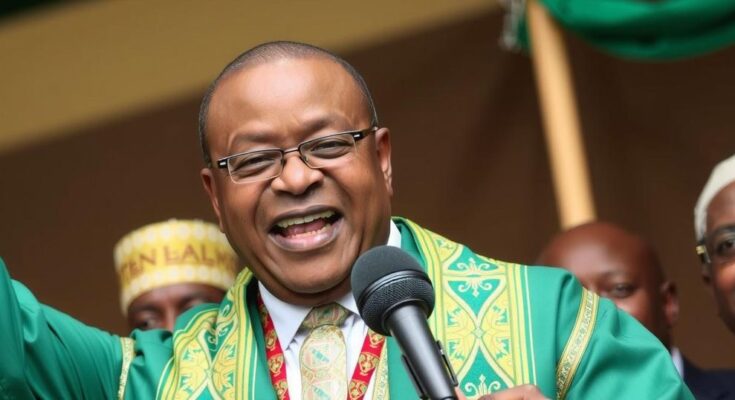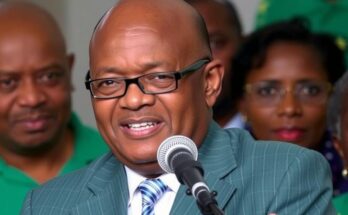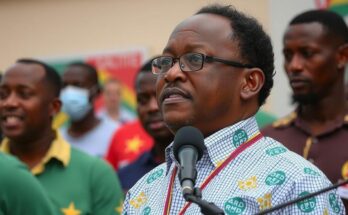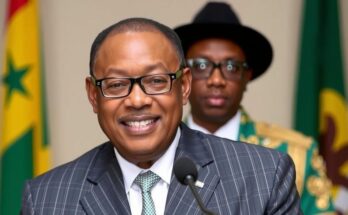Former President John Dramani Mahama won the recent presidential election, capitalizing on public dissatisfaction with the ruling NPP and its economic management. Vice-President Mahamudu Bawumia conceded defeat shortly after the polls, confirming Mahama’s victory, which is seen as a response to the economic turmoil faced by the nation, including high inflation and a debt default. This election marks Mahama’s successful return to the presidency after previous unsuccessful attempts.
Ghana’s former president John Dramani Mahama has secured a decisive victory in the most recent presidential election, successfully reclaiming the presidency after his previous attempts in 2016 and 2020. This election represented a significant political shift, as voters expressed their dissatisfaction with the ruling New Patriotic Party (NPP) and its management of the country’s economic challenges, which have included soaring inflation and a recent debt default. Vice-President Mahamudu Bawumia, the NPP candidate, acknowledged defeat shortly after the polls closed, highlighting the electorate’s desire for change.
In an unprecedented outcome, the NDC claimed that Mahama garnered 56.3% of the votes compared to Bawumia’s 41.3%. The election was conducted amidst considerable public discontent regarding the economic difficulties faced by the nation, which has been struggling with currency devaluation and a recent $3 billion IMF bailout. While the official results from the election commission are pending, early indications from party representatives confirm Mahama’s electoral triumph.
The NPP, under President Nana Akufo-Addo, faced substantial challenges during its eight-year tenure, particularly economic instability characterized by high inflation rates, which, despite a slight reduction, remained a critical issue for voters. Mahama’s supporters celebrated the results passionately, indicating a clear preference for his leadership. In contrast, Bawumia’s efforts to maintain continuity faced steep criticism due to Akufo-Addo’s economic policies, which many approach with disapproval.
Ghana’s political landscape has a rich history of democratic stability, particularly between its two main political parties, the New Patriotic Party (NPP) and the National Democratic Congress (NDC). Since the reintroduction of multiparty politics in 1992, these parties have alternated in power. The recent election was heavily influenced by economic issues, particularly during a period marked by financial turmoil, including a currency crisis and high inflation rates. These factors significantly influenced voter sentiment, ultimately leading to the NDC’s resurgence under Mahama in the face of critiques against the incumbent party’s performance.
In summary, John Dramani Mahama’s victory represents a significant shift in Ghanaian politics, coming in response to widespread dissatisfaction with the NPP’s handling of the economy. As he prepares to return to the presidency after multiple attempts, the results from this election highlight the electorate’s yearning for change and renewal in leadership. The political dynamics between the NDC and NPP continue to evolve as Ghana approaches a new chapter in its governance.
Original Source: www.theguardian.com




